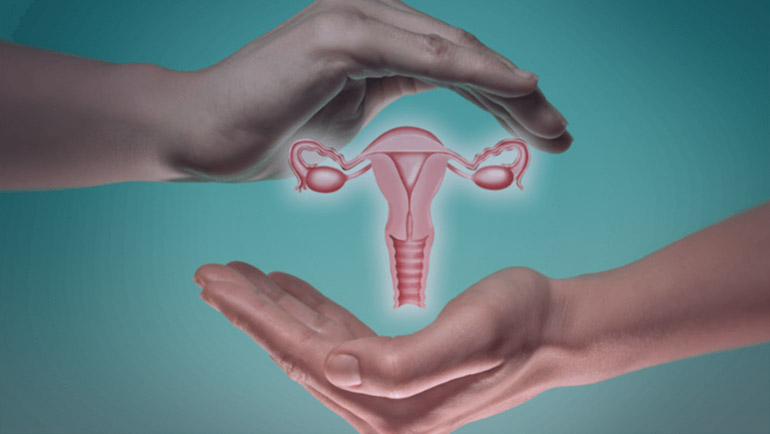What is Thickening of the Uterine Wall (Endometrial Hyperplasia)?
In order to understand the methods used in the treatment of thickening of the uterine wall, it would be right to first answer the questions of what uterine thickening is and why it is caused. Although uterine wall thickening is often associated with uterine cancer, it does not always cause uterine cancer. Thickening of the uterine wall can occur with age or hormonal disorders. Every month, before menstrual periods, the uterine wall thickens slightly to prepare for pregnancy. If pregnancy does not occur, the thickened tissue is expelled from the uterus as menstrual bleeding. In this case, thickening of the uterine wall is a normal, physiological condition. When this thickening is more than normal, it can cause heavy bleeding that does not stop and complaints of extreme pain. The secretion of estrogen and progesterone hormones in adequate amounts and in harmony is very important for a healthy reproductive system. If estrogen is over-secreted and not balanced with progesterone hormone, thickening of the uterine wall may occur. As the thickening of the uterine wall increases, it can cause cancer. For this reason, thickening of the uterine wall is a condition that should be closely monitored.
Who Has Thickening of the Uterine Wall?
Thickening of the uterine wall, which we call “endometrial hyperplasia” in medicine, is a condition that we frequently observe especially in women with polycystic ovary syndrome. However, women over the age of 40 and those with diabetes are also in the high risk group. Obesity and overweight are also known to cause uterine wall thickening. Thickening of the uterine wall can also be seen in long-term estrogen use if appropriate progesterone support is not provided.
What are the Symptoms of Uterine Wall Thickening? How to Detect?
The most common symptom of uterine wall thickening is prolonged menstrual bleeding with severe pain. The intensity and length of bleeding may change in order to expel the excessively thickened wall tissue under the influence of estrogen. As a result of excessive thickening of the uterine wall, cells can develop abnormal structures, which can lead to uterine cancer. Thickening of the uterine wall is therefore a serious condition that needs to be treated in a timely manner. In cases where treatment is delayed, thickening of the uterine wall can progress to uterine cancer.
How to recognize a thickening of the uterine wall
Uterine wall thickening is a condition that can be easily diagnosed by specialist obstetricians during a gynecological examination. Ultrasound images are usually sufficient to detect the presence and extent of thickening. The diagnosis can be made by comparing the numerical data from the ultrasound image with the normal uterine wall thickness. In advanced cases, hysteroscopy (visualization of the inside of the uterus with a special camera system and sampling) can be used to fully observe the condition of the uterus. This procedure may also be necessary to determine whether there is a mass formation in the area. If necessary, a sample can also be taken from the uterus during the hysteroscopy procedure.
How to treat uterine wall thickening
Treatment of thickening of the uterine wall is mostly done with medication. Progesterone medication, which is used to balance excess estrogen production, helps to stop the thickening. Progesterone supplements can be taken orally in tablet form, or the same treatment can be provided by inserting a medicated spiral (mirena). At this point, however, it is best to determine the most appropriate treatment method, taking into account the patient's uterine structure and complaints. After the planned treatment of uterine wall thickening is completed, an endometrial biopsy may be needed again. Regular check-ups after the treatment is completed are also important for early detection of possible risks. At the same time, if the thickening of the uterine wall is caused by overweight or obesity, determining the appropriate diet list for the patient will help the treatment to give more effective results. As you can see, it would be a better approach to evaluate and decide on a patient basis when making a treatment plan.
Uterine Wall Thickening Treatment Ankara
Thickening of the uterine wall is a condition that can be diagnosed and treated in many practices in Ankara. Patients who want to be diagnosed and treated in this regard can call our practice and be examined by Op. Dr. Aslıhan Yazıcıoğlu.


